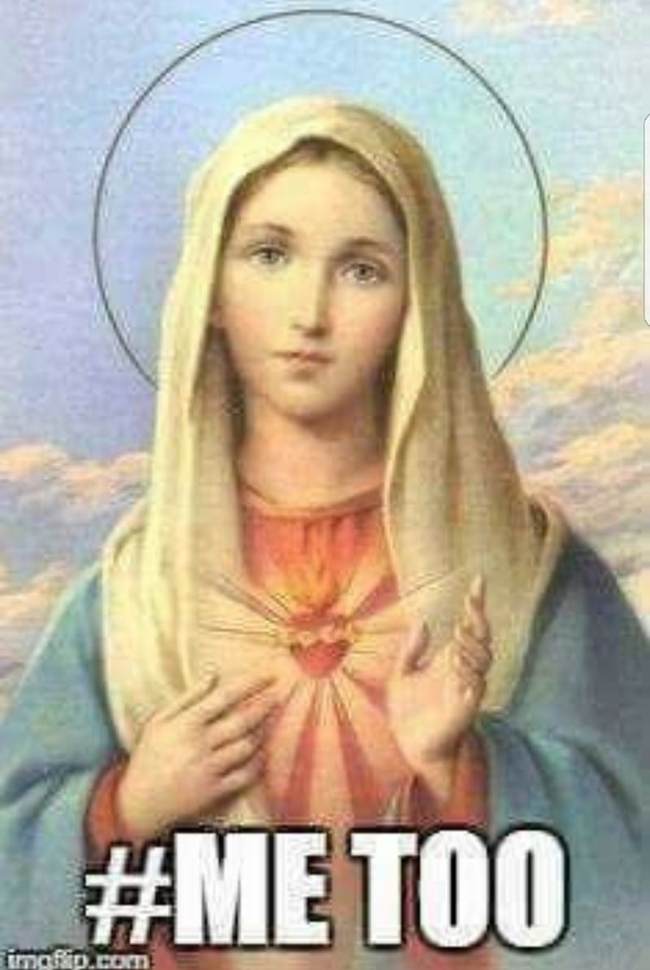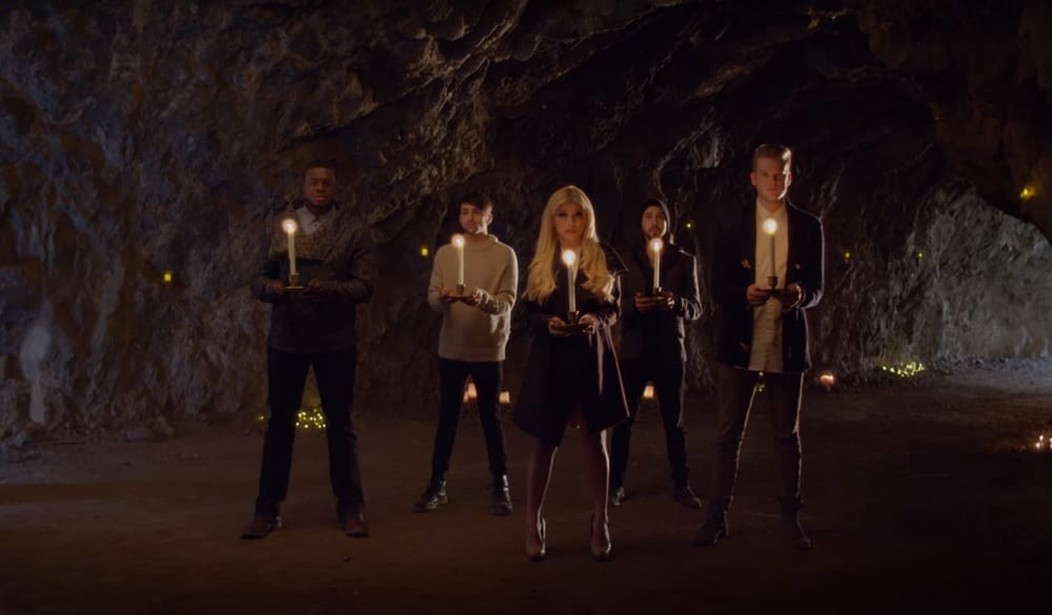
I really loathe “praise music.” It’s probably just early stage curmudgeonliness, you know, the stage you go through right before you have to ramble on and on about how hard it was when you were growing up and yelling “get off my lawn, you damned kids.” I loathe praise music and bowdlerized, banal campfire songs (like anything by Marty Haugen) that dominate modern hymnals. While a lot of it is merely displeasing from an aesthetic point of view and intellectually demeaning, a large slice of it is self-worship, that is, it is extolling our own efforts rather than praising God, and some of it is downright heretical.
Every Christmas season, churches across the country have youth services where they sing this catchy song:
LYRICS:
Mary did you know that your baby boy will one day walk on water?
Mary did you know that your baby boy will save our sons and daughters?
Did you know that your baby boy has come to make you new?
This child that you’ve delivered, will soon deliver youMary did you know that your baby boy will give sight to a blind man?
Mary did you know that your baby boy will calm a storm with his hand?
Did you know that your baby boy has walked where angels trod?
And when you kiss your little baby, you have kissed the face of GodMary did you know, Mary did you know, Mary did you know
The blind will see, the deaf will hear and the dead will live again
The lame will leap, the dumb will speak, the praises of the lambMary did you know that your baby boy is Lord of all creation?
Mary did you know that your baby boy will one day rule the nations?
Did you know that your baby boy is heaven’s perfect Lamb?
This sleeping child you’re holding is the great I amMary did you know, Mary did you know, Mary did you know
This is patent nonsense and why this is considered to be “Christian” music is beyond me.
Of course, Mary knew. Or, at least Saint Luke thought so:
26 In the sixth month, the angel Gabriel was sent from God to a town of Galilee called Nazareth,
27 to a virgin betrothed to a man named Joseph, of the house of David, and the virgin’s name was Mary.
28 And coming to her, he said, “Hail, favored one! The Lord is with you.”
29 But she was greatly troubled at what was said and pondered what sort of greeting this might be.
30 Then the angel said to her, “Do not be afraid, Mary, for you have found favor with God.
31 Behold, you will conceive in your womb and bear a son, and you shall name him Jesus.
32 He will be great and will be called Son of the Most High,* and the Lord God will give him the throne of David his father,
33 and he will rule over the house of Jacob forever, and of his kingdom there will be no end.”
34 But Mary said to the angel, “How can this be, since I have no relations with a man?”*
35 And the angel said to her in reply, “The holy Spirit will come upon you, and the power of the Most High will overshadow you. Therefore the child to be born will be called holy, the Son of God.
36 And behold, Elizabeth, your relative, has also conceived* a son in her old age, and this is the sixth month for her who was called barren;
37 for nothing will be impossible for God.”
38 Mary said, “Behold, I am the handmaid of the Lord. May it be done to me according to your word.” Then the angel departed from her.
An angel bringing you this message is sort of a big “heads up” that the child is going to be unusual. The references used by Gabriel would have been instantly recognizable to any Jew living in Palestine at the time. And, if Mary didn’t know, and, more importantly didn’t acquiesce in this venture of her own free will, we are actually buying into the radical feminist notion that Mary was a rape victim.
Without getting into competing exegesis (and I’m really serious about this, people), the wedding at Cana shows that Mary knew the power of her son.
Dear @pontifex, we've had our ups and downs, but I think you should know that a lot of parishes in the United States perform at Christmas Mass a song that questions whether Mary "espoused the divine will for salvation wholeheartedly."
— (((≠))) (@ThomasHCrown) December 14, 2017
I know this seems like trivia, but having the Feast of the Nativity as a platform for suggesting that Mary was not a knowing and voluntary participant in Salvation seems unwise.
— (((≠))) (@ThomasHCrown) December 14, 2017
For the other Catholics reading:
I apologize for adding this, but someone who has actually listened to that song enough also notes that it denies the Immaculate Conception, too, which is basically a bonus-round heresy.
— (((≠))) (@ThomasHCrown) December 14, 2017
The music is bad enough when the theology is orthodox. Setting bald-faced, barking-mad heresy to a catchy tune and introducing it into church pageants goes a long way towards explaining how we’ve got where we are.














Join the conversation as a VIP Member